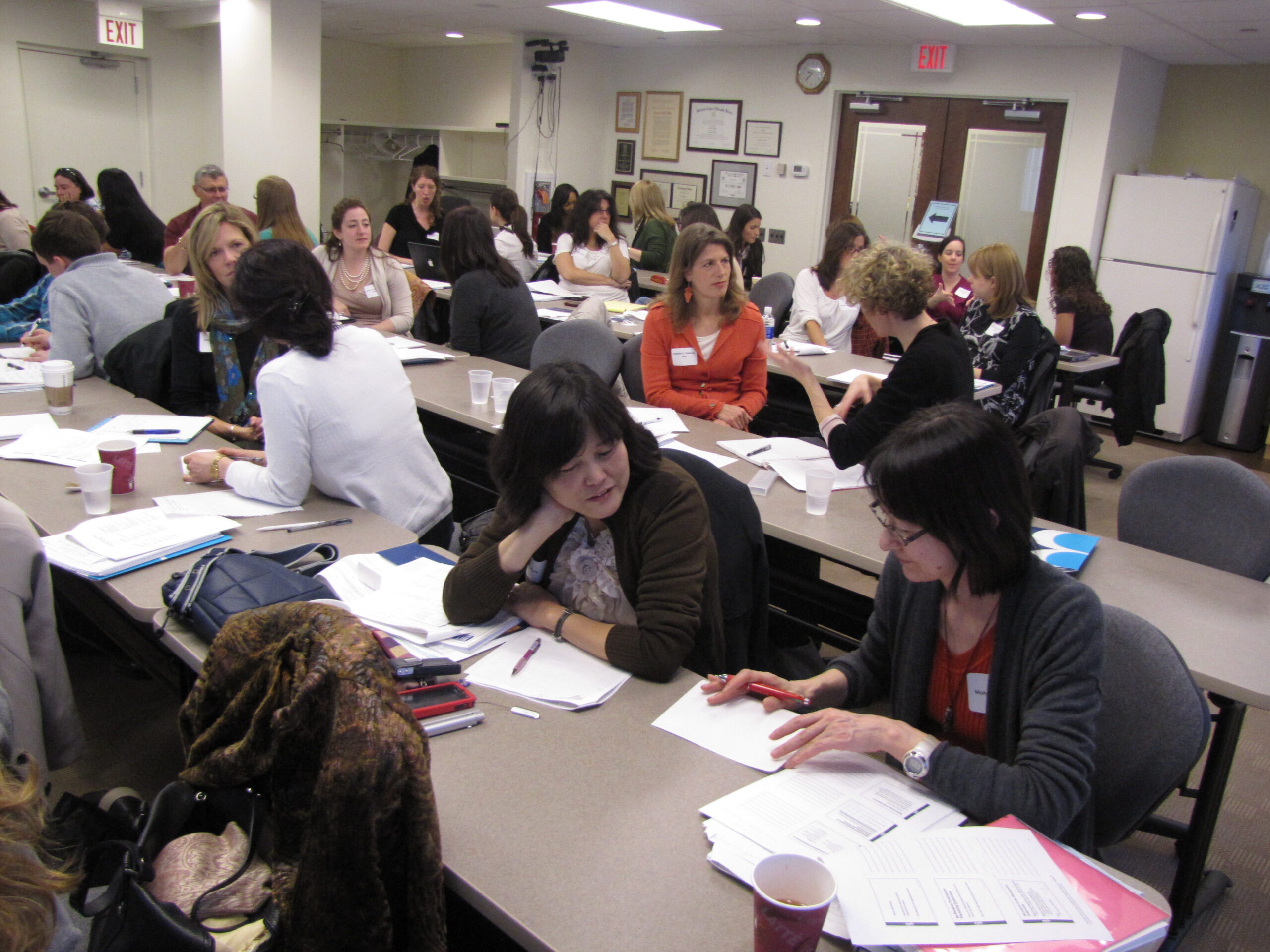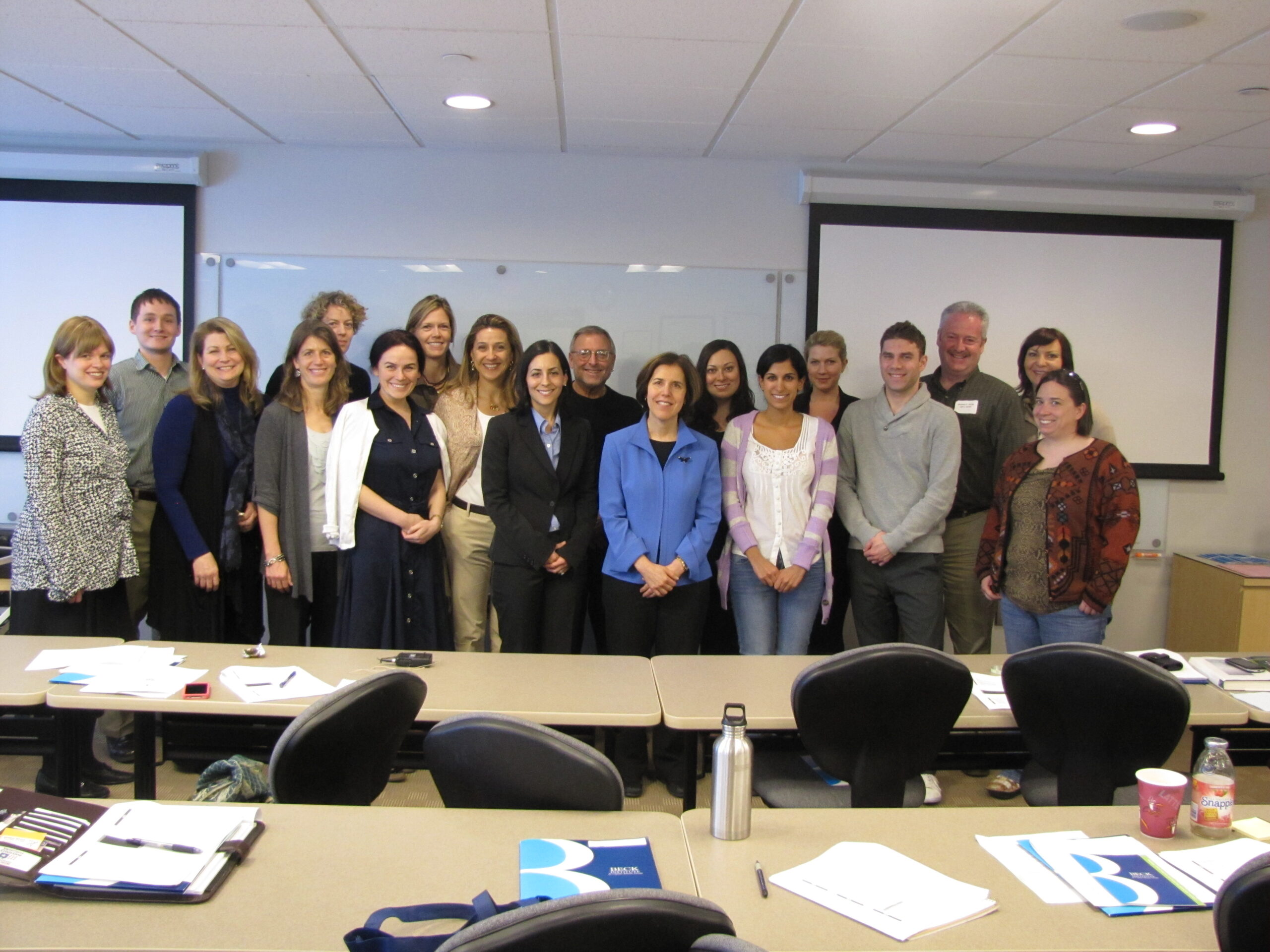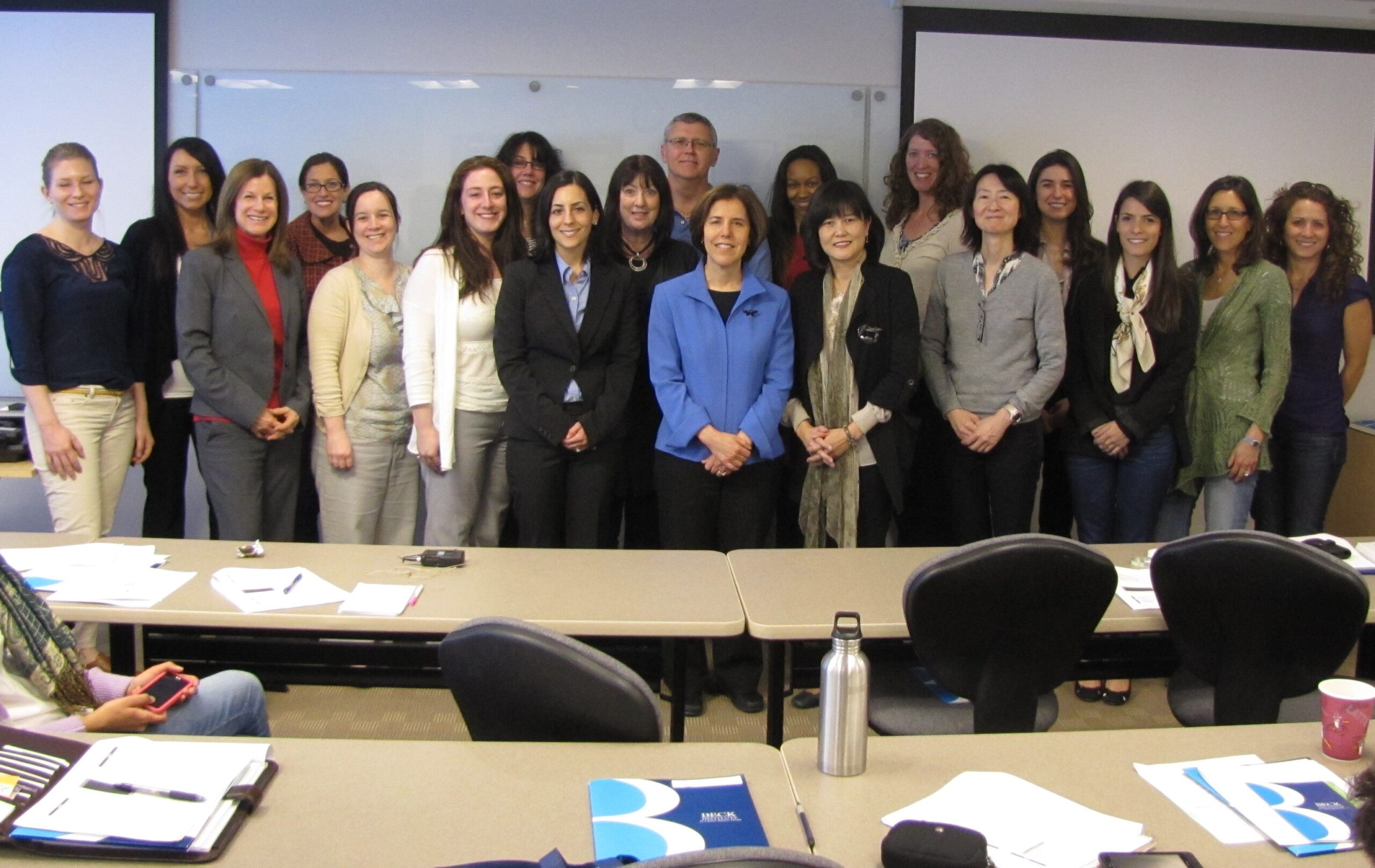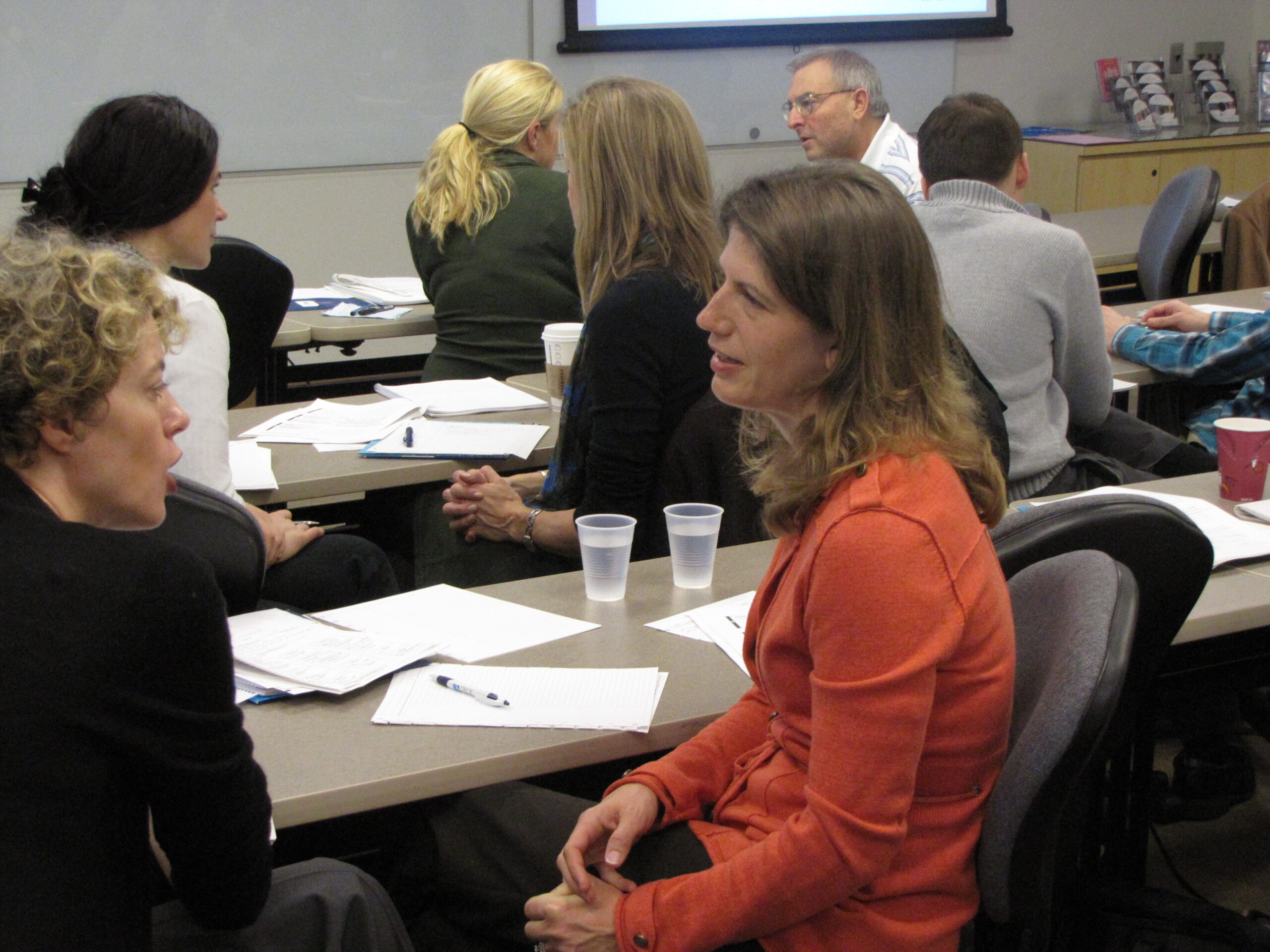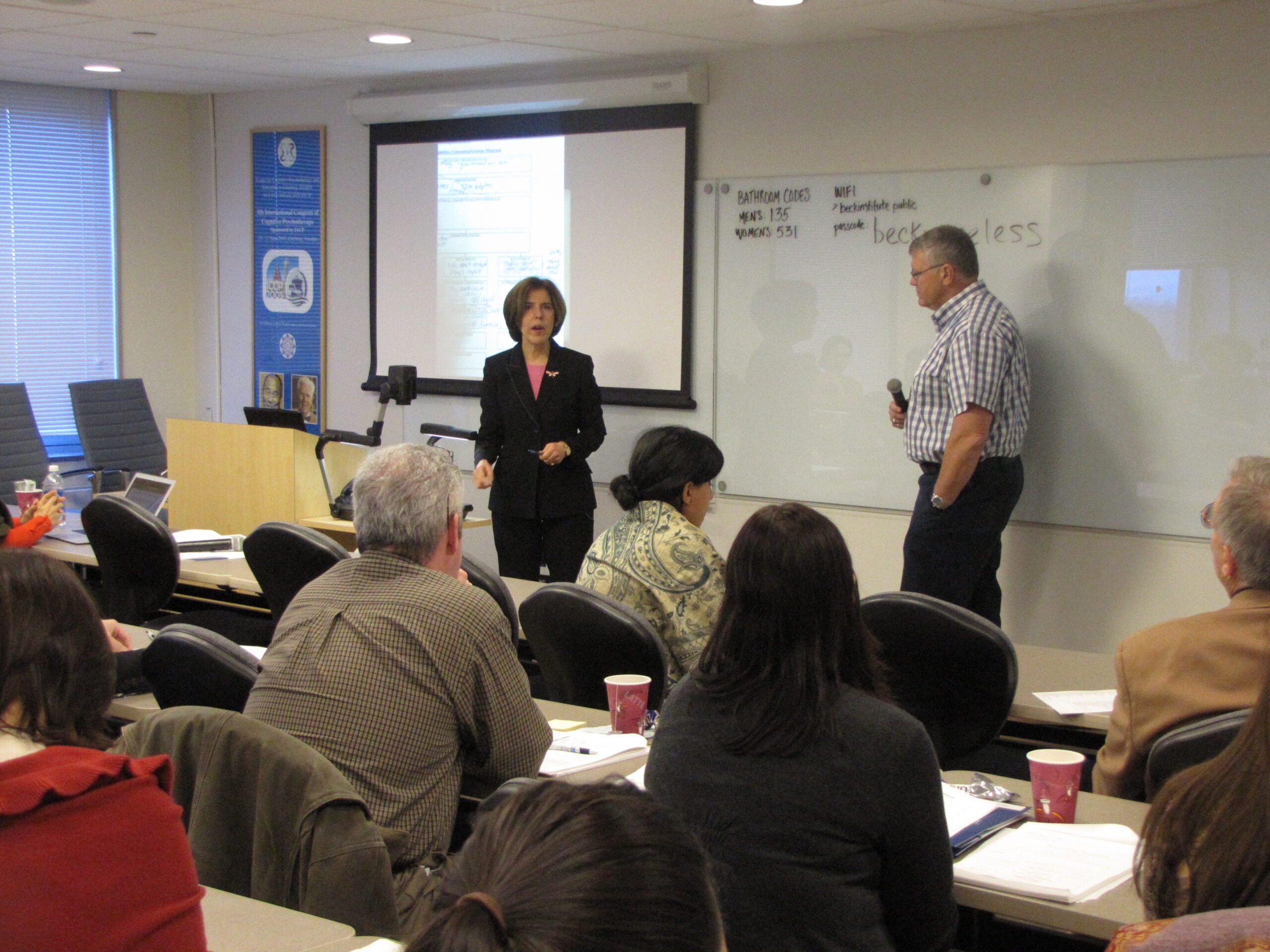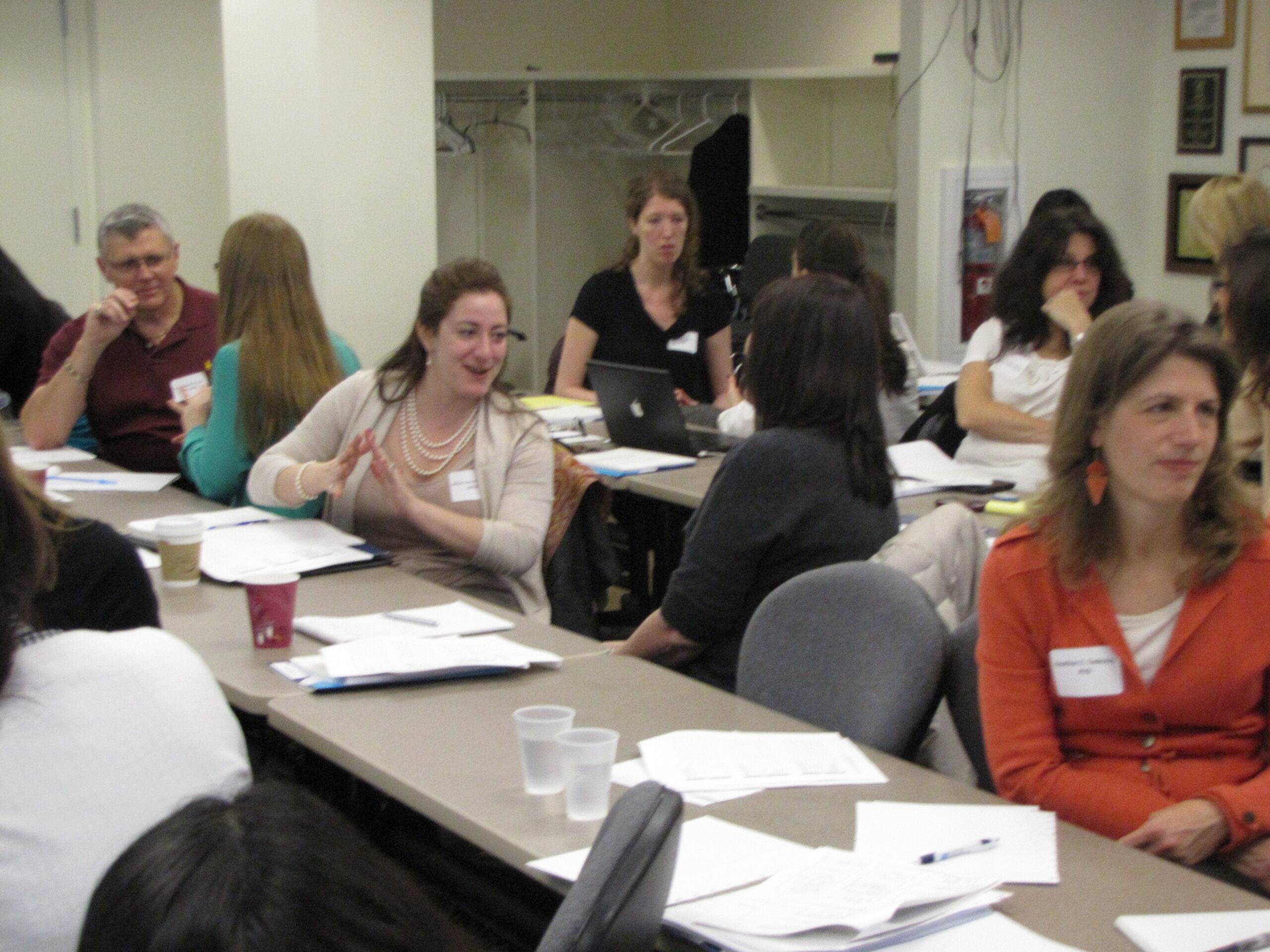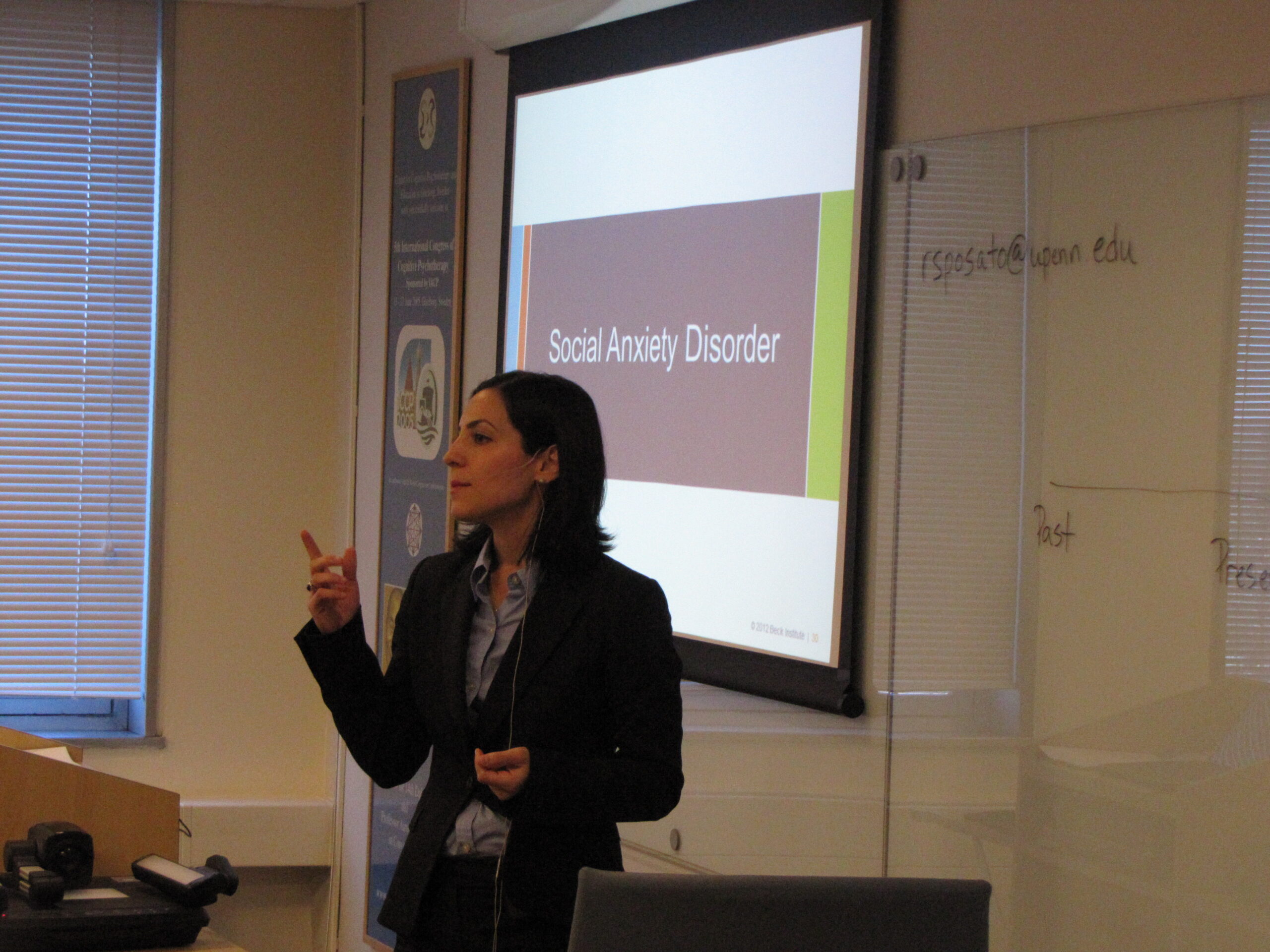 Social workers, psychiatrists, family physicians, nurses, psychologists, graduate students, and other professionals from mental health, medical, and related fields traveled from Australia, Brazil, Canada, Japan, Latvia, United Kingdom, and thirteen U.S. states.
Social workers, psychiatrists, family physicians, nurses, psychologists, graduate students, and other professionals from mental health, medical, and related fields traveled from Australia, Brazil, Canada, Japan, Latvia, United Kingdom, and thirteen U.S. states.
Workshop participants agreed that the diversity of the classroom enriched the learning experience. Participants received professional training in Cognitive Behavior Therapy from Judith S. Beck, Ph.D., Rosanna Sposato, Psy.D., and other Beck Institute faculty.
Dr. Judith Beck (pictured above) lectured on CBT for depression and instructed participants on how to: establish a strong therapeutic alliance; educate patients about their diagnosis; explain the cognitive model; elicit expectations for treatment; socialize patients to treatment; and, most importantly, instill hope.
 Dr. Rosanna Sposato (left) lectured on CBT for Anxiety (including Generalized Anxiety Disorder, Social Anxiety Disorder, and Panic Disorder). Dr. Sposato explained cognitive behavior therapists must focus on the catastrophic thoughts patients have about their symptoms. For example, a patient with panic disorder might believe that the increase in his heart rate and chest pain he is experiencing means he is about to have a heart attack. One of the ways that CBT has been elaborated and expanded upon has been the development of a cognitive formulation for each of the different disorders, as well as the development of specific techniques for each disorder. Cognitive behavior therapists must determine the key cognitions and behaviors of each individual patient and use their conceptualization to plan treatment.
Dr. Rosanna Sposato (left) lectured on CBT for Anxiety (including Generalized Anxiety Disorder, Social Anxiety Disorder, and Panic Disorder). Dr. Sposato explained cognitive behavior therapists must focus on the catastrophic thoughts patients have about their symptoms. For example, a patient with panic disorder might believe that the increase in his heart rate and chest pain he is experiencing means he is about to have a heart attack. One of the ways that CBT has been elaborated and expanded upon has been the development of a cognitive formulation for each of the different disorders, as well as the development of specific techniques for each disorder. Cognitive behavior therapists must determine the key cognitions and behaviors of each individual patient and use their conceptualization to plan treatment.
Click here to learn more about CBT workshops at Beck Institute.
